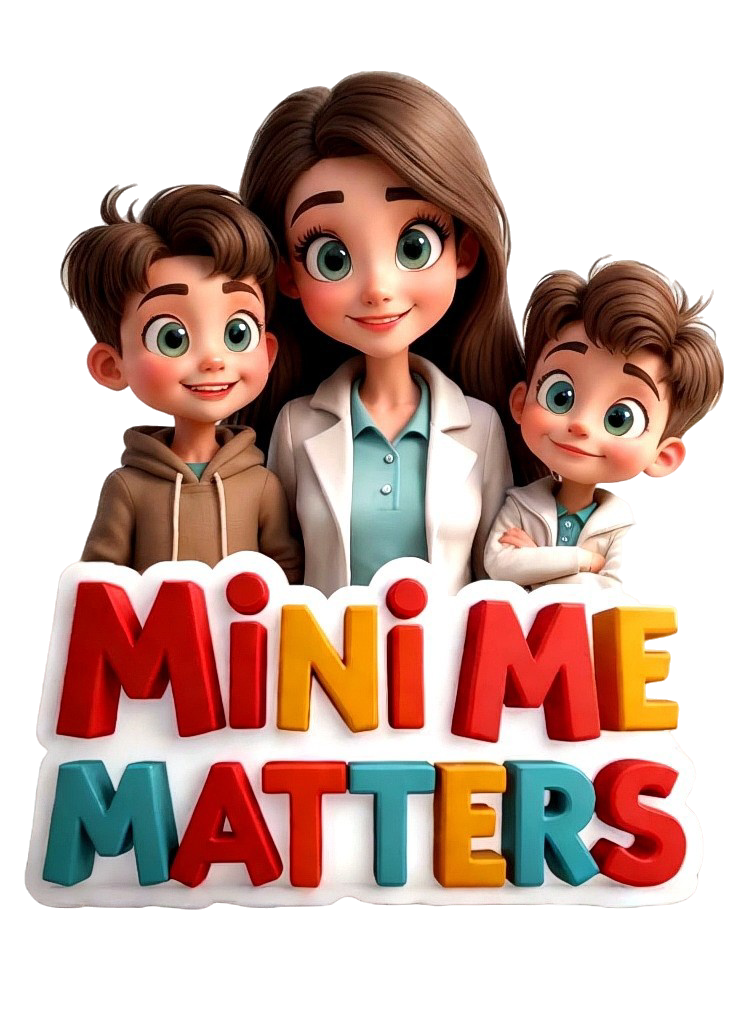Ah, free play— a Mini-Me’s ultimate superpower and a parent’s golden ticket to a few minutes of (semi) quiet coffee time!! But did you know that those chaotic forts made of couch cushions and the impromptu pirate invasions in your living room are actually doing wonders for your little one’s development?
Free play is like the wild, untamed jungle of a Mini-Me’s imagination—completely unstructured and totally led by them. It’s the anti-schedule, no rules, no flashcards, and definitely no “Mom, what’s the quadratic equation?” vibes. Think of it as a child’s creative playground, whether they’re battling invisible dragons or hosting tea parties with dinosaurs. It’s not just “play”—it’s serious business for their brains, bodies, and social smarts.
The Science-y Bit: Why Free Play Matters
Alright, buckle up for some evidence-based parenting gold. Here’s what researchers (and your mom-gut) are saying:
1. Brain Gains
Free play strengthens executive function—the brain’s control center for planning, problem-solving, and figuring out why the glue stick is in the freezer (true story).
Imaginative play directly enhances creative thinking and cognitive flexibility, skills they’ll need whether they’re solving math problems or negotiating bedtime extensions. (Russ & Dillon, 2021).
2. Emotional Boot Camp
Life can be a rollercoaster, and free play is like the kiddie training ride. Peter Gray (2011) explained in the American Journal of Play that free play helps children cope with stress and build emotional stability. These little “failures” teach them how to adapt—think of it as a safe space for trial and error. When Mini-Mes deal with minor setbacks—like their block tower toppling or a game of tag turning into a dramatic soap opera—they’re learning resilience. These little “failures” help Mini-Mes manage bigger emotions later in life.
(Translation: Your mini-me’s epic tantrum over losing “rock-paper-scissors” today might mean fewer meltdowns over curfews as a teenager. Maybe.)
3. Social Smarts
Unstructured play is a masterclass in relationships. Mini-Mes learn negotiation (“You can be the king, but I get the dragon suit”), conflict resolution, and teamwork. Harvard University (2020) research notes that free play is crucial for developing empathy and social competence—basically, it’s where Mini-Mes learn not to be jerks.
Why Free Play is an Endangered Species
Sadly, free play is becoming as rare as a full night’s sleep for parents. Here’s why:
- Screen Time Takeover: Why climb a tree when you can virtually climb one with your favorite YouTuber? You may also check MiniMe Article on this:https://www.minimematters.com/balancing-the-screen-tech-tips-for-raising-a-healthy-digital-native/)
- Overscheduling: Karate on Monday, piano on Tuesday, coding class on Wednesday… when’s a Mini-Me supposed to just be a Mini-Me?
- Parental Paranoia: (“What if they swallow the LEGOs or the ground suddenly turns into lava?”)
How Mini-Me Parents Can Revive Free Play
Here’s how to embrace the magic of free play without adding another layer of stress to your parenting plate:
1. Keep It Simple
You don’t need Pinterest-perfect setups. A cardboard box, some crayons, and their imagination are more than enough. Remember: Mini-Mes see castles where we see trash.
2. Declutter the Schedule
Not every moment needs to be filled with structured activities. Give them the gift of boredom—it’s the launchpad for creativity.
3. Provide Open-Ended Toys
Forget the high-tech gadgets. Blocks, costumes, sticks, and even that lone sock from the laundry can spark a world of possibilities. (Who knew socks could double as puppets?)
4. Step Back (But Keep an Ear Out)
Let them lead the way. Resist the urge to turn their pirate game into a “teachable moment” about oceanography. (Trust me, they’ve got it under control.)
By skipping free play, we’re robbing our Mini-Mes of essential life skills—and ourselves of those precious moments when they’re so absorbed in their imaginary worlds they forget to ask for snacks!

REFERENCES
Harvard Graduate School of Education (2020): Social-emotional learning through play.
Russ, S. W., & Dillon, J. A. (2021). Frontiers in Psychology: The role of pretend play in creative development.
Gray, P. (2011). American Journal of Play: The decline of play and the rise of psychopathology.
Tamis-LeMonda CS, Shannon JD, Cabrera NJ, Lamb ME. Fathers and mothers at play with their 2- and 3-year-olds: contributions to language and cognitive development. Child Dev. 2004;75:1806–1820



